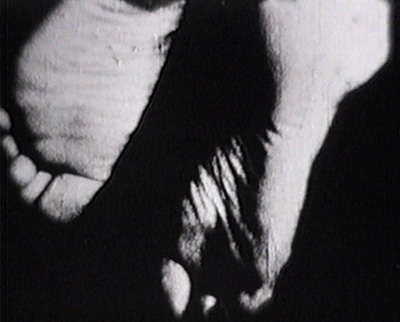
1962, Japan, 16mm, b/w, music by Yoko Ono, 10 min.
"A male and a female body during lovemaking are photographed in such a way that we are frequently unsure which particular portion of which body we are seeing. These close-ups are juxtaposed with long shots in slightly fast motion of the bodies entwined or rubbing against one another. The film emphasizes the essential biological nature of the human organism. In a more formal sense, too, Ai (Love) is interesting because of the dramatic black and white contrasts in the imagery and because of Yoko Ono's soundtrack, which combines a 'shhhhhhh' reminiscent of white noise with a variety of other intermittent sounds (to make the soundtrack, Ono hung a microphone out the window)."
Scott MacDonald
When Jonas Mekas saw Ai (Love) at the legendary International Experimental Film Festival in Knokke 1963/64, he praised the film as a poetic and sensuous exploration of the body - fluid, direct, beautiful. Later, Iimura stated in response that this exploration was realized out of fear of censorship. Japanese censors were so strict on nudity, and on pubic hair in particular, that Iimura chose to shoot the whole film in extreme close-up in regular 8mm. Only after coming to New York in 1966 he could blow the film up to 16mm, and show it to an audience.
